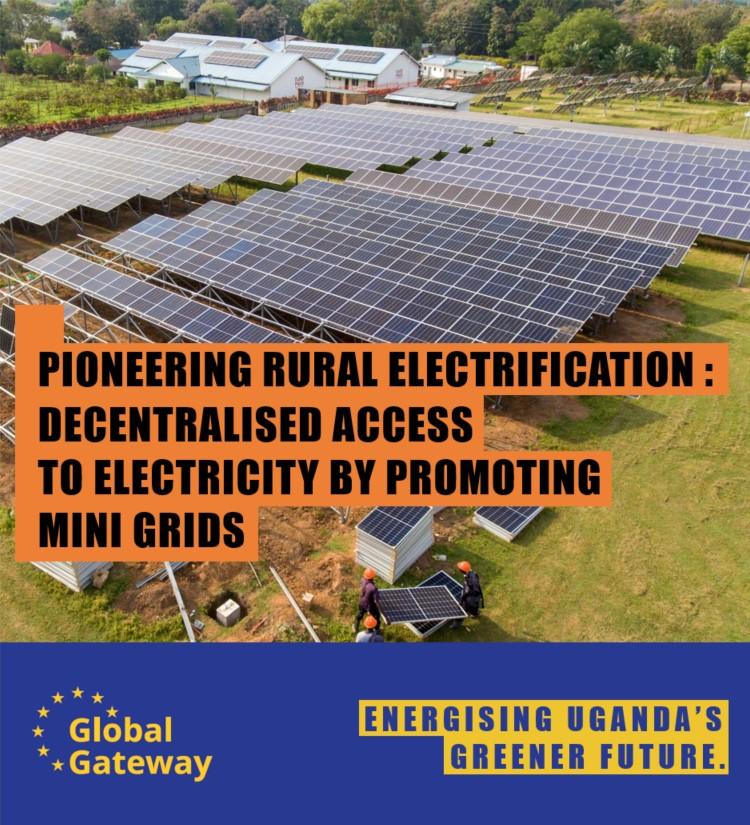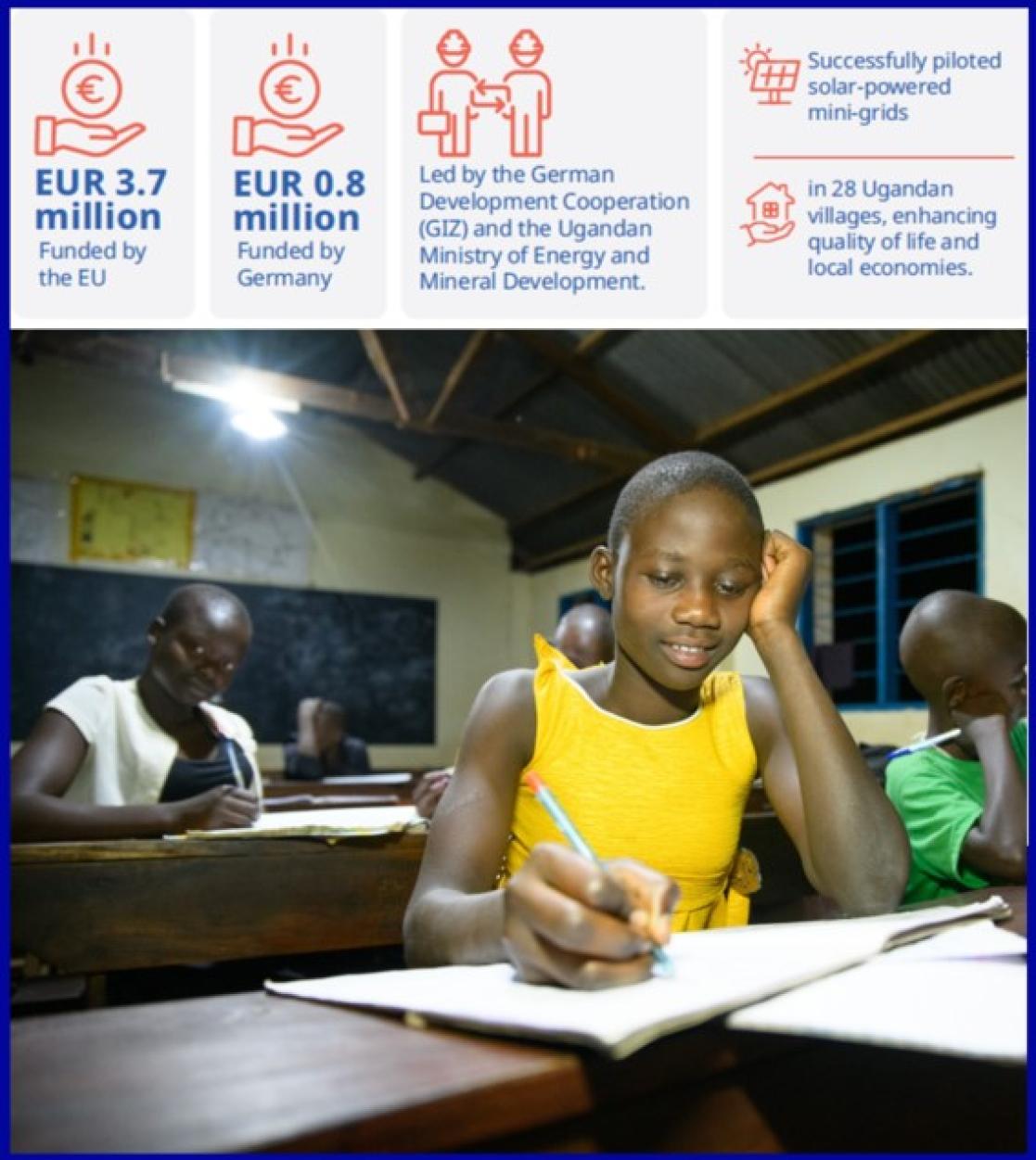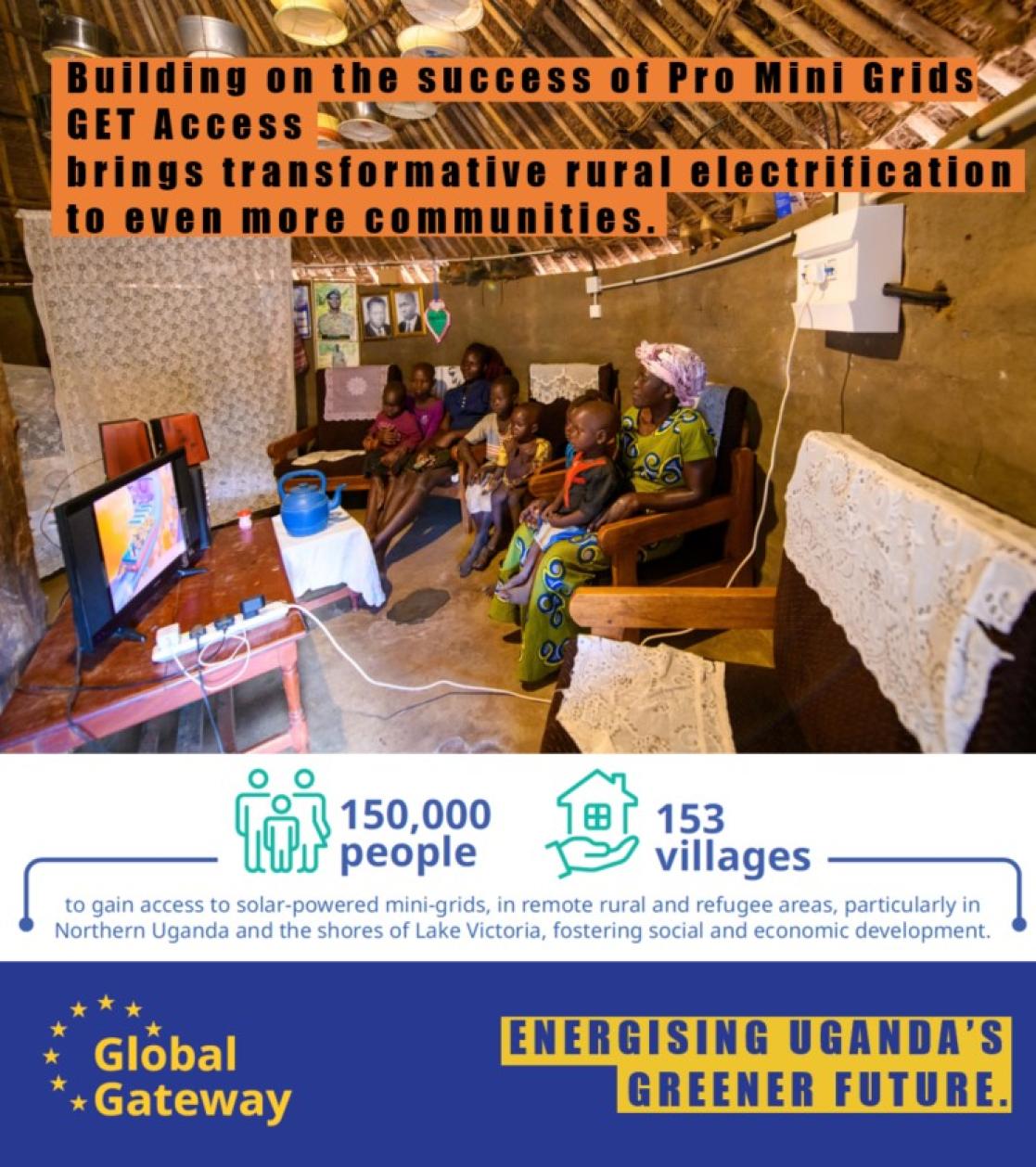Powering Rural Uganda: EU support for mini-grid developments

The European Union is a key partner in Uganda's ambition to achieve universal access to electricity by 2030, placing a particular emphasis on the development of mini-grids to electrify rural areas. Mini-grids are small-scale electricity networks that can operate independently or in conjunction with the national grid, providing a reliable and sustainable energy solution for remote communities.
One of the flagship EU-supported initiatives in this domain is the Pro Mini Grids project. This pioneering venture has demonstrated the viability of a sustainable electricity supply model for remote Ugandan communities, where extending the national grid may not be immediately feasible. The project has provided clean and reliable energy to over 20,000 people in host and refugee communities, and it has also established a Renewable Energy Training Centre that has supported and trained 250 solar technicians. These trained professionals are essential for unlocking energy demand, creating jobs, and stimulating local economies.
The Pro Mini Grids project in Uganda, implemented by the Deutsche Gesellschaft für Internationale Zusammenarbeit (GIZ), embodies the European Union's dedication to promoting sustainable and inclusive energy access throughout rural areas. This project takes a comprehensive approach by engaging in policy guidance to enhance the capabilities of public actors in planning and regulating mini-grid electrification, as well as in fostering enduring business models essential for the sustainability of mini-grids.
A pivotal aspect of the project's strategy involves developing regulatory instruments and mechanisms that not only incentivize private sector engagement but also provide investment security, which is crucial for scaling up the deployment of renewable energy mini-grids.
Additionally, the Pro Mini Grids project places a strong emphasis on advancing technology and design, investing in human capital through Technical and Vocational Education and Training (TVET) for solar and mini-grid technicians, thus building private sector capabilities to efficiently plan, install, and operate mini-grids.
The project also ensures productive use by facilitating training and providing access to finance for Small and Medium-sized Enterprises (SMEs), smallholder farmers, and households. This approach guarantees that electricity is leveraged to stimulate economic development and enhance the quality of life for rural communities. GIZ's role in implementing the Pro Mini Grids project is instrumental in driving Uganda's rural electrification forward, fostering an environment where energy is not just a utility but a driver of growth and prosperity.

European Union Delegation to Uganda
The success of the Pro Mini Grids initiative led to the establishment of the GET Access Uganda project. Funded by Germany and the European Union, and led by KfW, this project scales up the successful mini-grid model, targeting a total investment of EUR 35 million with contributions from the Government of Uganda and private sectors. The goal is to bring transformative rural electrification to even more communities, with an emphasis on fostering social and economic development.
GET Access Uganda plans to reach 150,000 people in 153 villages, primarily in Northern Uganda and the Lake Victoria region. These areas are known for their significant potential for solar power, which the mini-grids are expected to harness. The project employs a unique approach that includes subsidies for private developers to construct and maintain mini-grids, thus ensuring affordable energy access. It also promotes the Productive Use of Electricity (PUE) to stimulate local businesses and agribusinesses that can benefit from improved energy access.

European Union Delegation to Uganda
The EU's support for mini-grids in Uganda is a testament to its commitment to sustainable development and climate action. By facilitating the transition from traditional energy sources to renewable and clean alternatives, the EU is helping Uganda not only meet its energy goals but also address broader environmental challenges, such as deforestation and carbon emissions reduction. The focus on mini-grids underscores the EU's recognition of the pivotal role that decentralized energy solutions play in achieving energy access for all, particularly in rural and hard-to-reach areas.





